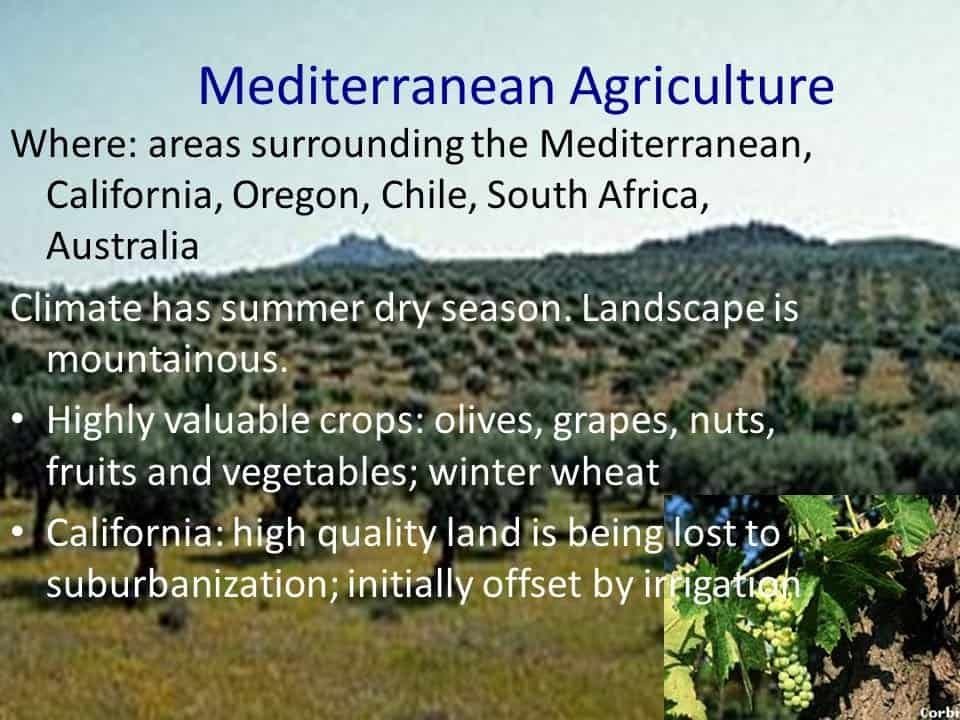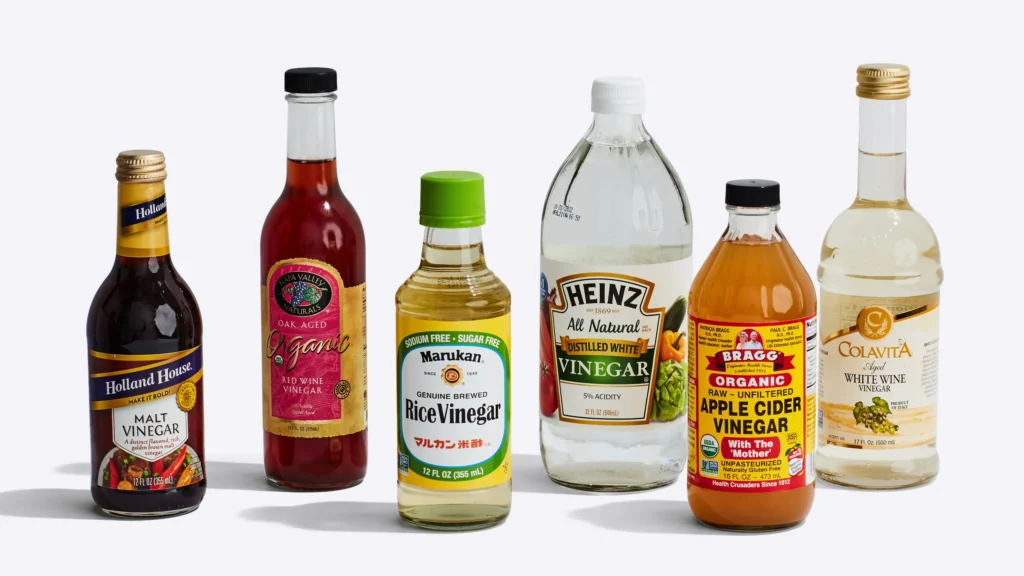tl;dr: Mediterranean agriculture refers to the agricultural practices and crops grown in the Mediterranean region.
Mediterranean agriculture is a unique farming system that has been practiced for centuries in the countries surrounding the Mediterranean Sea. This article will explore the characteristics of Mediterranean agriculture, the main crops grown in this region, the benefits it offers, and the challenges it faces.
Characteristics of Mediterranean agriculture
Mild climate
One of the defining characteristics of Mediterranean agriculture is its mild climate. The region experiences hot, dry summers and mild, wet winters. This climate is ideal for growing a wide variety of crops, as it provides the necessary warmth and sunlight for plant growth.
Reliance on irrigation
Due to the limited rainfall in the Mediterranean region, irrigation plays a crucial role in Mediterranean agriculture. Farmers have developed sophisticated irrigation systems to ensure that their crops receive enough water to thrive. These systems include canals, reservoirs, and drip irrigation techniques.
Diverse crops
Mediterranean agriculture is known for its diverse range of crops. The region produces a wide variety of fruits, vegetables, grains, and herbs. This diversity is made possible by the favorable climate and the rich, fertile soils found in the Mediterranean region.
Main crops grown in Mediterranean agriculture
Olive trees
Olive trees are one of the most iconic crops of Mediterranean agriculture. The region is renowned for its high-quality olive oil, which is produced from the olives harvested from these trees. Olive cultivation has been a part of Mediterranean agriculture for thousands of years and continues to be a significant economic and cultural activity.
Grapes
Grapes are another important crop in Mediterranean agriculture. The region is famous for its vineyards and the production of wine. The Mediterranean climate provides the ideal conditions for grape cultivation, resulting in flavorful and aromatic wines that are highly sought after worldwide.
Wheat
Wheat is a staple crop in Mediterranean agriculture. The region produces various types of wheat, including durum wheat, which is used to make pasta. The fertile soils and favorable climate allow for high-quality wheat production, contributing to the region’s food security.
Citrus fruits
Citrus fruits, such as oranges, lemons, and grapefruits, thrive in the Mediterranean climate. These fruits are not only delicious but also rich in essential vitamins and minerals. Mediterranean agriculture plays a significant role in the production of citrus fruits, which are exported globally.
Tomatoes
Tomatoes are a versatile crop that is widely grown in the Mediterranean region. The warm climate and ample sunlight contribute to the flavorful taste and vibrant colors of Mediterranean tomatoes. They are used in various Mediterranean dishes, adding a burst of freshness and flavor.
Benefits of Mediterranean agriculture
High-quality products
Mediterranean agriculture is known for producing high-quality agricultural products. The combination of favorable climate, fertile soils, and traditional farming practices results in crops that are rich in flavor, aroma, and nutritional value. Whether it’s olive oil, wine, or fresh produce, Mediterranean agricultural products are highly regarded for their superior quality.
Environmental sustainability
Mediterranean agriculture has a strong focus on environmental sustainability. Farmers in the region have adopted practices that promote soil conservation, water management, and biodiversity. These practices help preserve the natural resources and ensure the long-term viability of agricultural activities in the Mediterranean region.
Preservation of traditional farming practices
Mediterranean agriculture is deeply rooted in tradition and cultural heritage. Farmers in the region have passed down their knowledge and farming techniques from generation to generation. This preservation of traditional farming practices not only contributes to the unique character of Mediterranean agriculture but also helps maintain the social fabric of rural communities.
Challenges faced by Mediterranean agriculture
Water scarcity
Water scarcity is a significant challenge for Mediterranean agriculture. The region’s limited rainfall and increasing water demands pose a threat to crop production. Farmers are constantly seeking innovative irrigation methods and water management strategies to cope with this challenge and ensure the sustainability of their agricultural activities.
Climate change
Climate change is another pressing issue for Mediterranean agriculture. Rising temperatures, changing rainfall patterns, and increased frequency of extreme weather events can have detrimental effects on crop yields and overall agricultural productivity. Farmers in the region are adapting their practices and exploring resilient crop varieties to mitigate the impacts of climate change.
Market competition
Mediterranean agriculture faces stiff competition from global markets. Imported agricultural products often flood the market, posing a challenge for local farmers. However, there is a growing demand for authentic, locally produced Mediterranean products, which presents opportunities for farmers to differentiate themselves and promote their unique offerings.
Conclusion
Mediterranean agriculture is a rich and diverse farming system that has shaped the culture, economy, and landscapes of the Mediterranean region. Its mild climate, reliance on irrigation, and diverse range of crops contribute to its uniqueness and resilience. Despite the challenges it faces, Mediterranean agriculture continues to thrive, providing high-quality products, promoting environmental sustainability, and preserving traditional farming practices.
FAQs
What type of agriculture is the Mediterranean?
The Mediterranean region is known for its Mediterranean agriculture, which is characterized by the cultivation of crops such as olives, grapes, citrus fruits, and wheat.
What is Mediterranean agriculture in human geography?
In human geography, Mediterranean agriculture refers to the agricultural practices and systems that are specific to the Mediterranean region. It includes the cultivation of crops that are well-suited to the Mediterranean climate and the use of traditional farming techniques.
Where is the Mediterranean agriculture?
Mediterranean agriculture is primarily found in the countries surrounding the Mediterranean Sea, including Spain, Italy, Greece, Turkey, and parts of North Africa. However, similar agricultural practices can also be found in other regions with a Mediterranean climate.
What is Mediterranean agriculture simple?
Simply put, Mediterranean agriculture refers to the type of agriculture practiced in the Mediterranean region, characterized by the cultivation of specific crops and the use of traditional farming methods suited to the Mediterranean climate.
Originally posted 2023-08-31 07:08:35.



